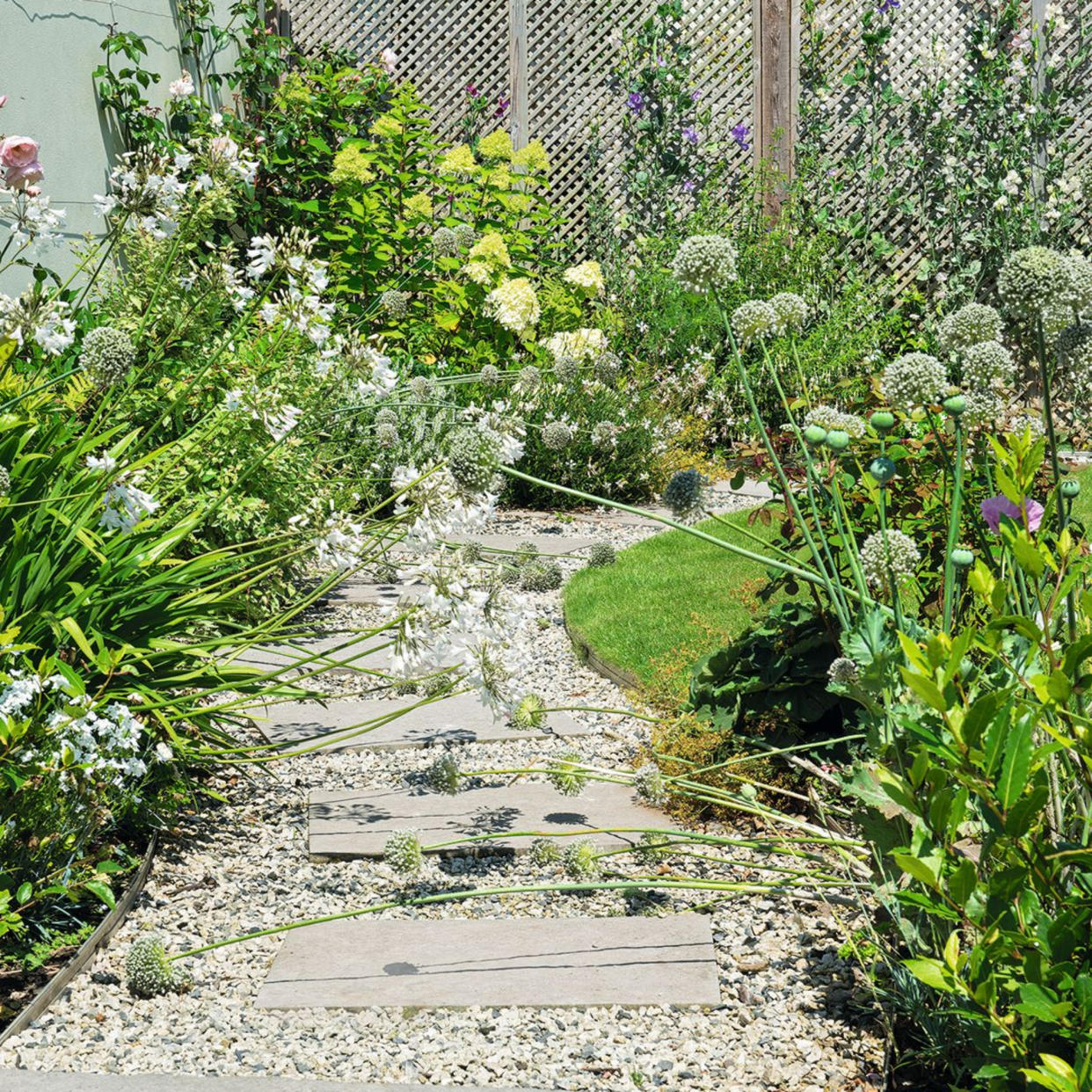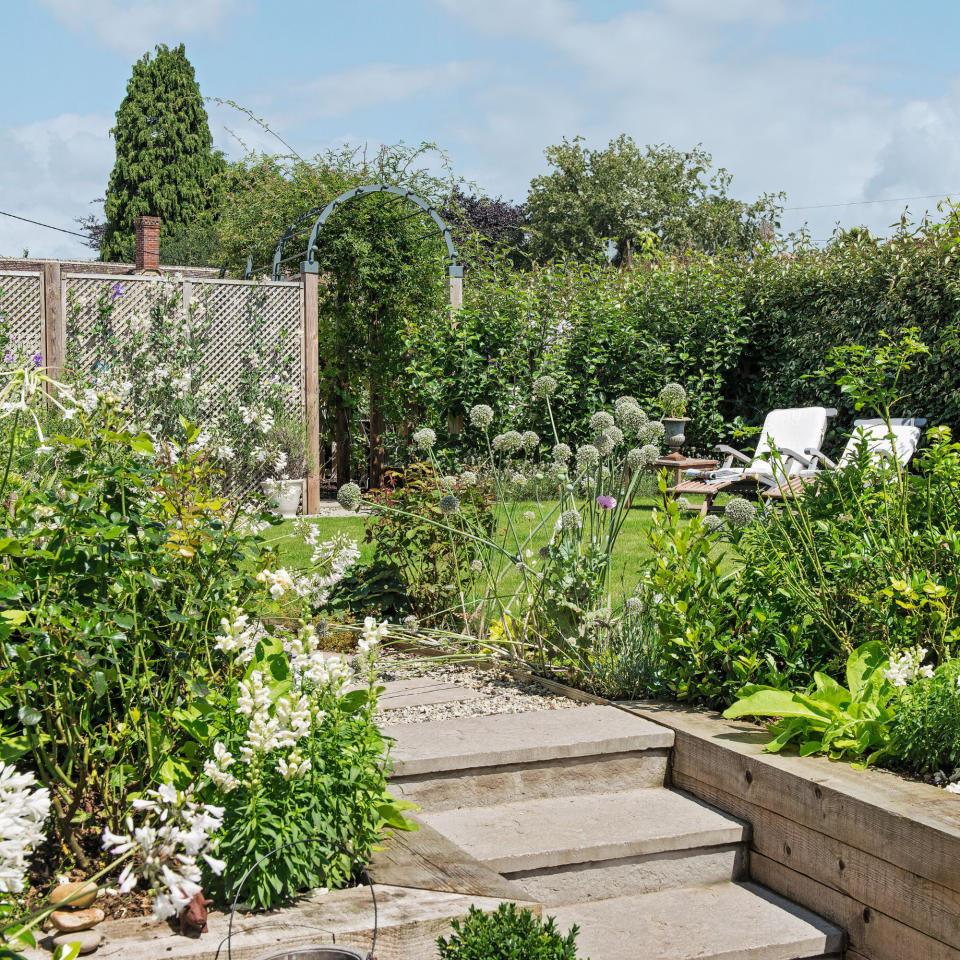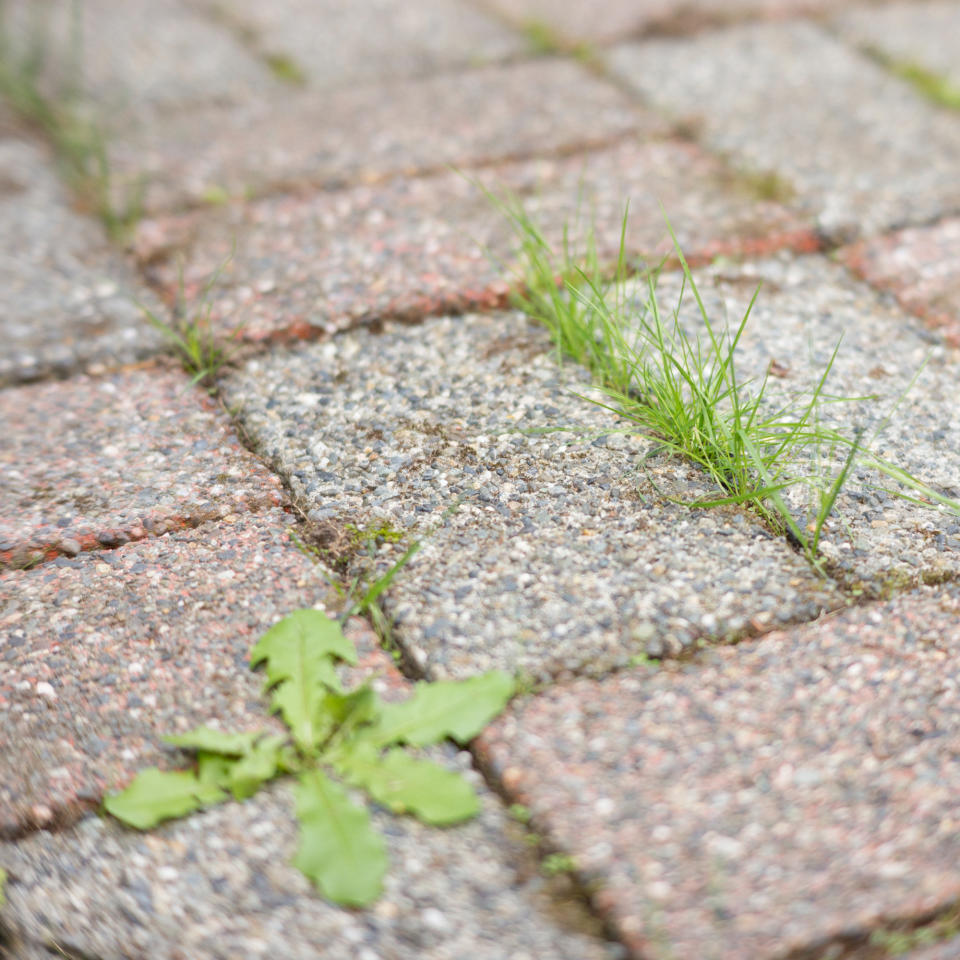Does white vinegar kill weeds? Gardening experts reveal their tips for the most effective results

Weeds are those invasive plants that, despite your efforts, you can never quite shake. If you're trying to bring your garden up to scratch for spring, there's nothing worse than weeds being a massive eyesore in your outdoor space. If you want to get rid of these pests as quickly as possible, it makes sense to reach for something you've likely already got in your cabinets, begging the question: can white vinegar kill weeds?
Although there are a host of ways to kill weeds, if you're considering using white vinegar for the job then it's probably because you're after a more natural and budget-friendly method – and we don't blame you. Given all the ways you can use white vinegar for cleaning, it makes sense that you wonder if it's just as effective in helping to remove weeds from a patio without causing further harm.
In short, yes, white vinegar can kill weeds. However, similar to using bio-washing powder to kill weeds, before bringing this cleaning staple into your garden, you ought to fully understand the way it affects plants as there are a handful of things to consider.

Does white vinegar kill weeds?
'White vinegar does kill weeds, but there are undoubtedly limitations to what it can kill and how effective is,' begins Josh Novell, director of Polhill Garden Centre. 'The acetic acid in vinegar acts like a weedicide, burning and desiccating the foliage. However, it's mostly a contact killer, meaning it only affects the parts it touches, and as a result, the stubborn roots underground will survive, and the weed is likely to regrow.'
Chiming in, Craig Wilson, co-founder, director and in-house gardening expert at Gardeners Dream adds that white vinegar may not be that effective if you're dealing with stronger perennial weeds, for example.
So, while white vinegar does kill weeds, it's got to be used in a specific way and for specific types of weeds if you're looking for worthy results.

How to use white vinegar to kill weeds
'Given it is not a purpose-built weed killer, white vinegar works best on young, tender weeds. When you're using it, aim for a sunny day to maximise its effectiveness and impact, as sunlight helps the vinegar to penetrate the leaves,' advises Josh.
You can spray the white vinegar onto your weeds using a spray bottle, like these from Amazon, or apply it to the leaves directly using a brush for even more precision. Craig even recommends adding a teaspoon of fairy liquid to your spray bottle, as this will help the solution stick to the leaves better.

One thing to remember is that you mustn't be hasty during this process, as getting white vinegar on surrounding plants and grass is the last thing you want to do. 'If white vinegar gets onto your grass it can turn it yellow. It can also kill your plants if it comes into contact with them too,' warns Chris Bonnett, founder of Gardening Express.
It's best to use white vinegar in areas of your garden that aren't filled with healthy, desirable plants you might accidentally kill. 'White vinegar is an excellent solution for weeds growing in the cracks of pathways, driveways, and patios. The lack of desired plants in these areas makes vinegar a safe and effective option. assures Craig.

FAQs
Does white vinegar kill weeds permanently?
No, white vinegar will not permanently kill weeds. While its acetic acid helps to dry up and kill the foliage of weeds, it's only effective upon application and doesn't penetrate deep into the roots.
'White vinegar is a contact herbicide, which means it only affects the parts of the plant it comes in direct contact with by killing their cells,' explains Fantastic Gardeners' gardening expert, Peter Ivanov. 'White vinegar also doesn't leave any residue in the soil so it won't be a weed-killing solution in the long run but instead will only work at the moment of its application.'
So in short, using white vinegar is best when removing weeds in gravel and stopping weeds from growing in block paving, for example. If you're dealing with weeds in a lawn, you're probably better off opting for alternative solutions.
However, if you need a fast solution (albeit not as effective), white vinegar will definitely suffice for the time being while you search for stronger methods.

 Yahoo News
Yahoo News 
